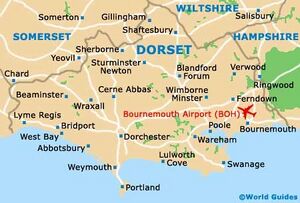Gillingas
| Author:Laxman Burdak, IFS (R) |

Gillingas were a Saxon tribe or clan that lived in today's Ealing, West End, London. The Gillinge were Jutes,[1] an amalgam of Cimbri, Teutons, Gutones and Charudes, called Eudoses, [2] Eotenas,[3] Iutae[4] or Euthiones[5]in other sources. Their name is likewise preserved in the place-names of Gillingham in Kent and Gillingham in Dorset.
Variants
- Ealing - Place name in London, England
- Gillinge
- Gylling næs
- Gillingham place name in Kent, England
- Gillingham place name in Dorset, England
Jat clans
Etymology
The Saxon name for Ealing was recorded c. 700 as Gillingas, which probably originates from the Gylling næs in Jutland. The suffix -ingas is the Latinized version of inge, an ethnonym for the Ingaevones, A West Germanic cultural group living along the North Sea coast in the areas of Jutland, Holstein, and Frisia in classical antiquity.[6] This was probably an Jutish-Ingaevonic group that migrated to Sub-Roman Britain. The name has changed over the centuries and has been known as 'Illing', 1130 AD; 'Gilling', 1243 AD; and 'Ylling', 1254 AD, until 'Ealing' became the standard spelling in the 19th century.[7] Attributions to a personal name Gilla[8] are examples of non-historical founding myths.[9][10]
Ealing
Ealing (/ˈiːlɪŋ/) is a district in West London, England. It is 7.5 miles west of Charing Cross. In the London Borough of Ealing, it is one of the borough's seven major towns (alongside Acton, Greenford, Hanwell, Northolt, Perivale and Southall).[11] Ealing, resembling the W5, W13 and NW10 post codes is the administrative centre of the borough. It is identified as a major metropolitan centre in the London Plan.[12] Ealing is in the historic county of Middlesex.
External links
See also
References
- ↑ Leonard Neidorf, "The Dating of Widsith and the Study of Germanic Antiquity," Neophilologus
- ↑ Tacitus, Germania, Germania.XLV
- ↑ Stuhmiller, Jacqueline (1999). "On the Identity of the "Eotenas"". Neuphilologische Mitteilungen. Modern Language Society. 100 (1): 7–14. JSTOR 43315276.
- ↑ Martin, Kevin M. (1971). "Some Textual Evidence Concerning the Continental Origins of the Invaders of Britain in the Fifth Century". Latomus. 30 (1): 83–104. JSTOR 41527856.
- ↑ Stenton, F. M. (1971). Anglo-Saxon England 3rd edition. Oxford: OUP. ISBN 978-0-19-280139-5.
- ↑ "Settlement names in -inge". Names in Denmark. Department of Nordic Research. 15 July 2011
- ↑ Ekwall, Eilert: "The Concise Oxford Dictionary of English Place-Names", Oxford University Press, 1936
- ↑ Room, Adrian: "Dictionary of Place-Names in the British Isles", Bloomsbury, 1988
- ↑ Brewer's Britain & Ireland: The History, Culture, Folklore and Etymology of 7500 Places in These Islands. Ayto, John; Crofton, Ian. Publisher: Weidenfeld & Nicolson, 2006
- ↑ Ingram, James Henry (1823). The Saxon chronicle, with an English Translation and Notes, Critical and Explanatory. London: Longman, Hurst, Rees, Orme, and Brown, Paternoster-Row.
- ↑ Ealing Council. "Welcome to Ealing: Your Guide to Living in Ealing".
- ↑ Mayor of London (February 2008). "London Plan (Consolidated with Alterations since 2004)" (PDF). Greater London Authority.

